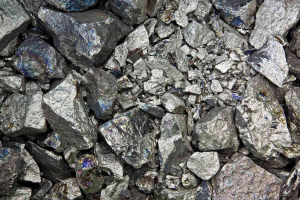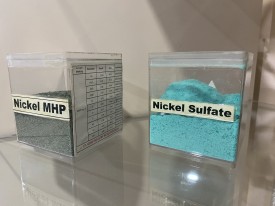Local workers lose out to Chinese workers
As a result of establishing the nickel-related industrial park in Morowali, Central Sulawesi, by an Indonesia-China joint venture in 2013 and multiple other Chinese investments, hundreds of thousands of Chinese workers have entered Indonesia in a massive influx, sparking controversy among Indonesians.
In an interview with Indonesia Business Post, Afdal Main, the Morowali Industrial Workers Union chairman, stated there were a few thousand Chinese workers who have now worked in Morowali to construct nickel smelters. He said some of these workers have high expertise and management positions. However, there are still many blue-collar workers such as drivers, chefs and operators. He added that most of them come with tourist visas.
Main also pointed out a wage disparity between Chinese workers at Morowali's smelter projects and their Indonesian counterparts. In most cases, Chinese workers receive higher salaries than local workers. He estimates they can receive as much as IDR10 million per month, while Indonesian workers earn an average of IDR3.6 million per month.
Manpower Minister Ida Fauziyah said earlier that the number of foreign workers (TKA) from China who entered Indonesia reached 8,700 people as of May 18, 2021. The arrival of Chinese workers in large numbers can cause problems for local Indonesian workers, especially related to discrimination.
Employing Chinese blue collar workers
Faisal Basri, an economist at the University of Indonesia (UI), said the Indonesian government claimed that the foreign workers were highly skilled experts. He said that they would return to their own countries after completing the construction of the smelters.
Basri then argued that the reality showed the opposite. As a result of his findings, in September 2020, PT Virtue Dragon Nickel Indonesia announced that the company required 607 workers from China. The only requirement for the job was only high school graduates aged under 45 years old. Their positions included unloading workers, chefs, excavators, forklift and crane operators, mechanics, warehouse managers, etc.
"Their salary ranges from 7,000 Yuan (IDR15,806,210) to 24,000 Yuan (IDR54,192,720)," he said, adding that the workers would begin working in Indonesia in October 2020.
Government data in 2020 indicates that there will be 19 nickel smelters operating in Indonesia and 15 others are construction. Many of them are foreign investments like Thingshan Holding Group, Zhejiang Huayou Cobalt, China National Machinery, Fujian Pan-Chinese Mining Co. Ltd, Jiangsu Delong Nickel Ind, Co. Ltd, etc.
Protests among Indonesian workers
The presence of Chinese workers in the workplace and the discrimination regarding their salaries have provoked protests among Indonesian workers.
According to the Confederation of Indonesian Trade Unions (KSPI) Chairman Said Iqbal, unskilled Indonesian workers are discriminated against by their Chinese counterparts. Generally, Chinese and Indonesian workers do not receive the same wages for the same job or position.
"What is the point of foreign investment if the local workers still live in poverty or if they have no access to jobs because Chinese workers have taken their jobs?" he said, adding that he estimated around 100,000 Chinese workers are currently working in Indonesia.
Preventing local workers' strikes and protests
Iqbal believes the Chinese government is looking to ensure that projects that have been sponsored by China's state-owned enterprises, regional governments or private companies will not be obstructed by local workers' strikes and protests.
Additionally, many private companies in China receive a loan from the state-owned banks, thus China's policy makes sure to send its blue collar workers hence the project runs smoothly. Moreover, China has 1.4 billion citizens, making it the most densely populated country globally. It is logical that the Chinese government finds it difficult to provide jobs at home.
"Whenever China invests overseas, it will also be followed by the distribution of its unemployed labor force, including former prisoners," Iqbal said. He alleged that the spread of China's investment and workers also has the political agenda to counter the US influence in the world.
Already have an account? Sign In
-
Start reading
Freemium
-
Monthly Subscription
20% OFF$29.75
$37.19/MonthCancel anytime
This offer is open to all new subscribers!
Subscribe now -
Yearly Subscription
33% OFF$228.13
$340.5/YearCancel anytime
This offer is open to all new subscribers!
Subscribe now







